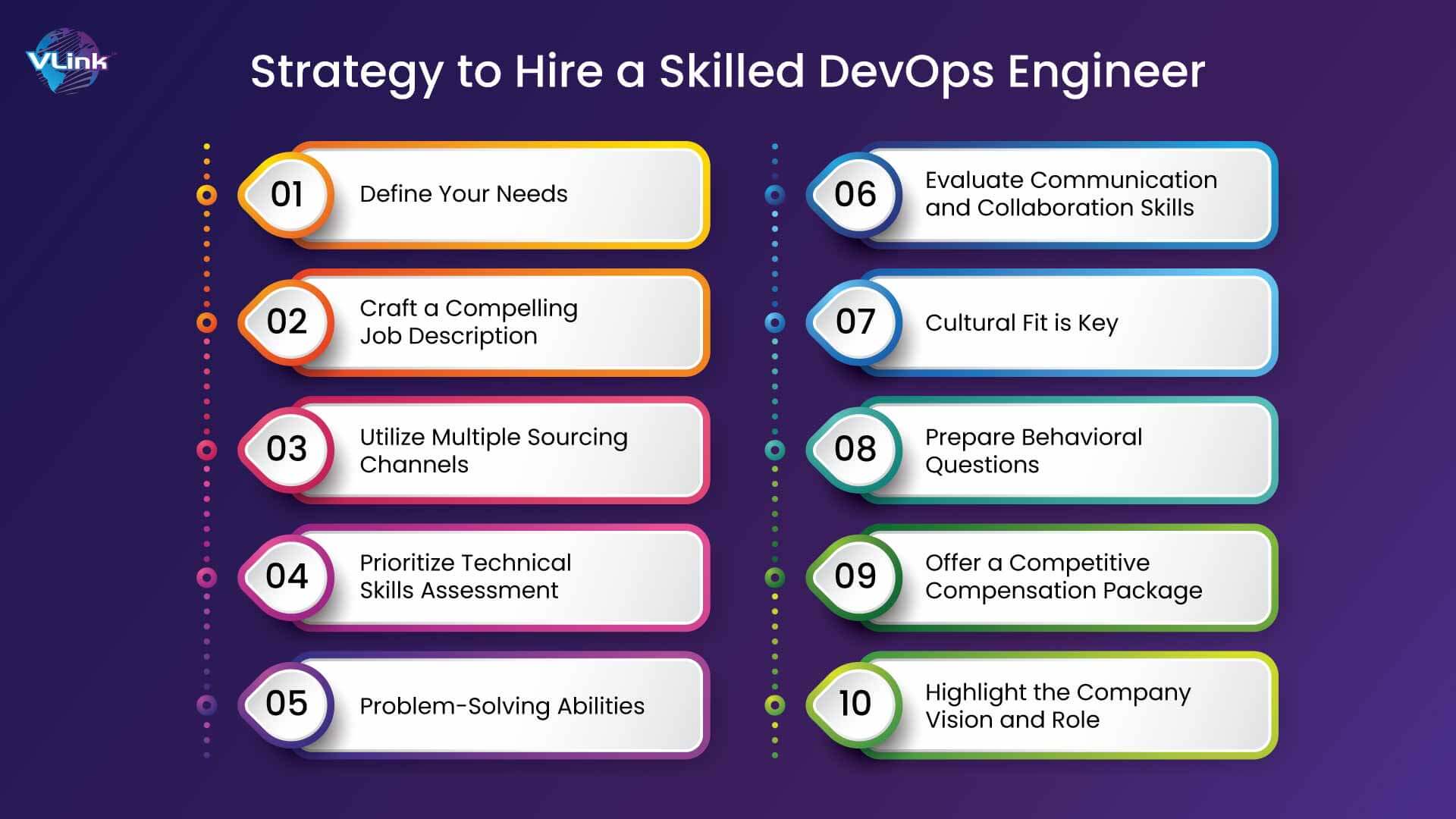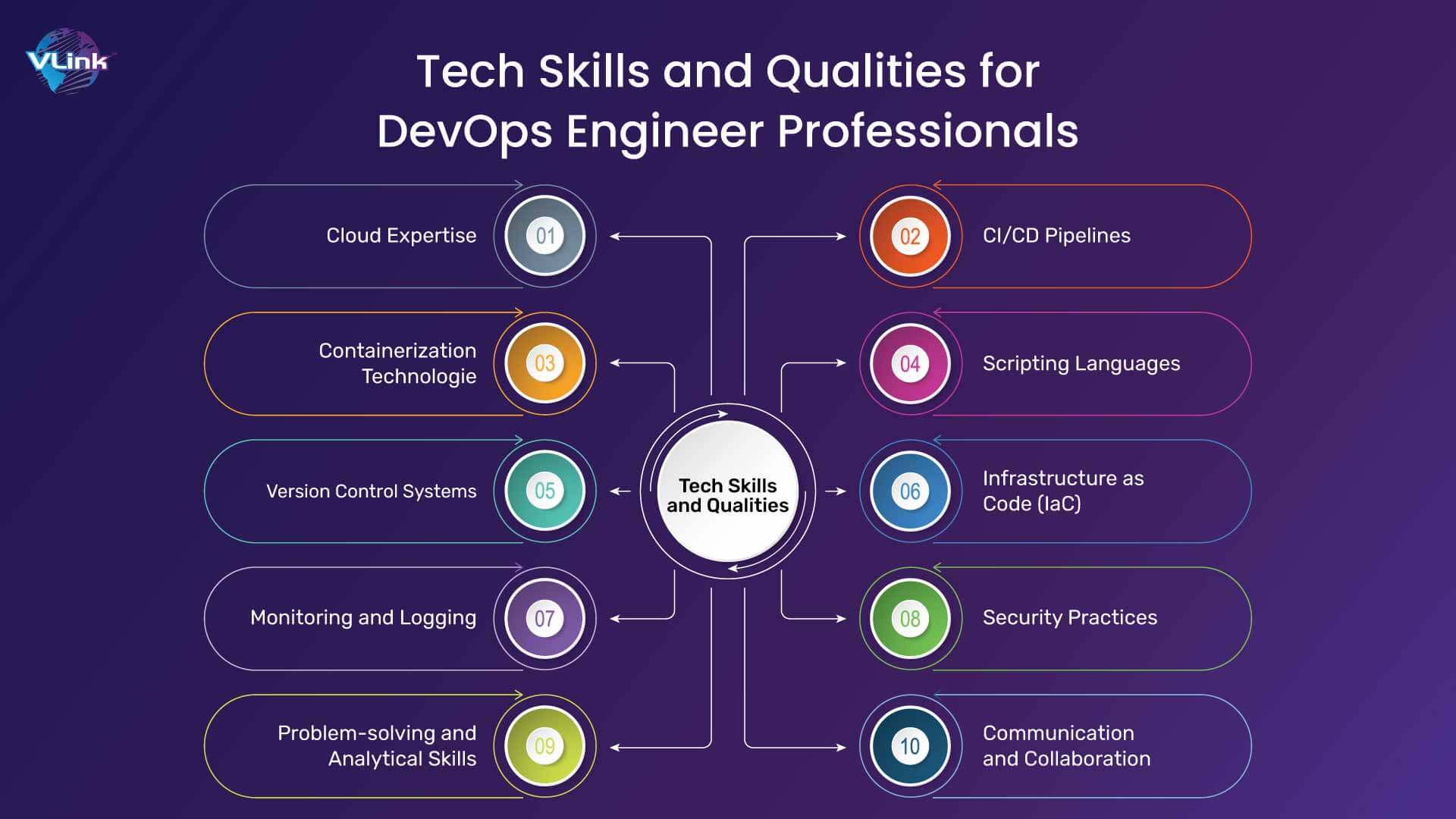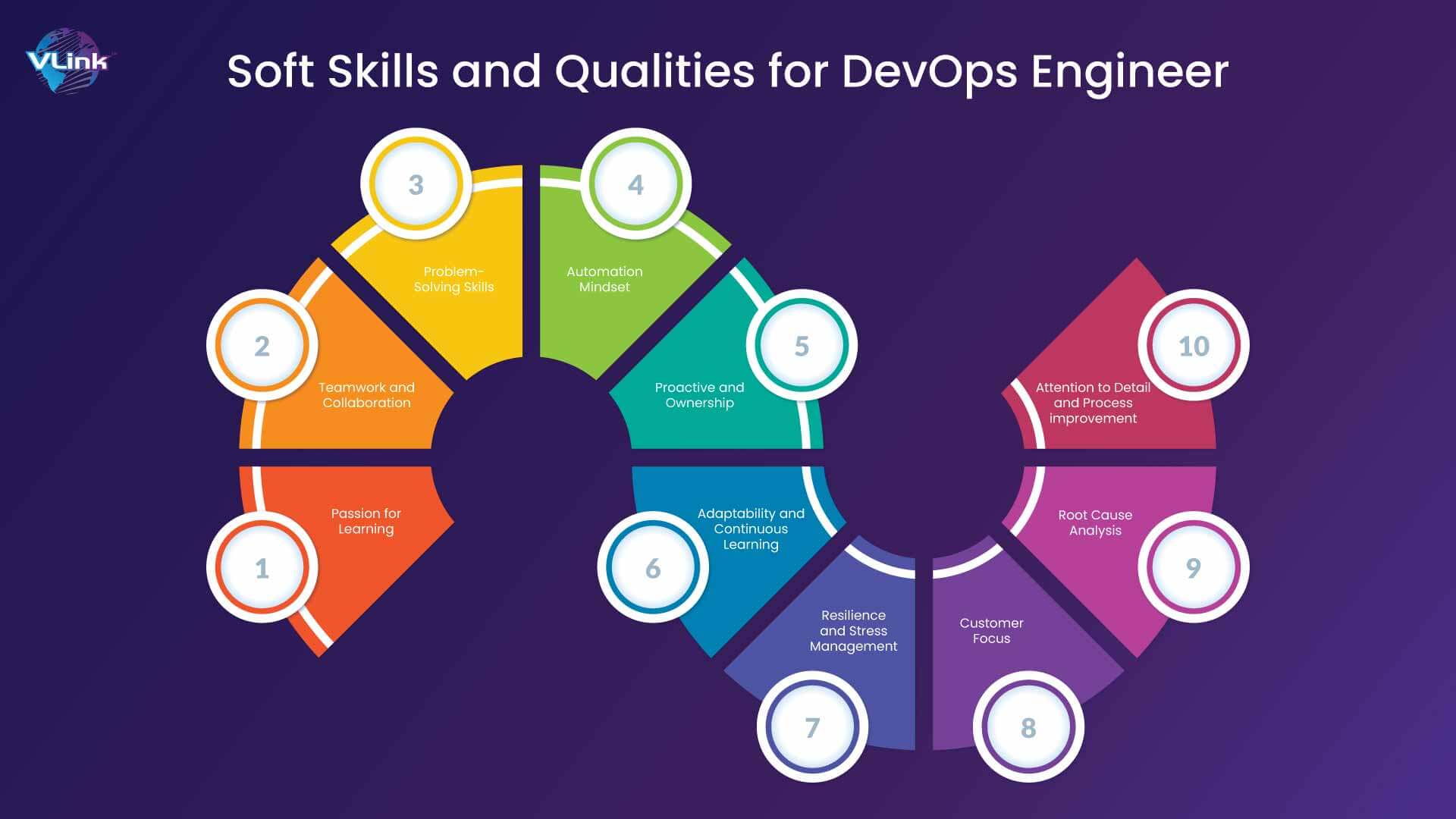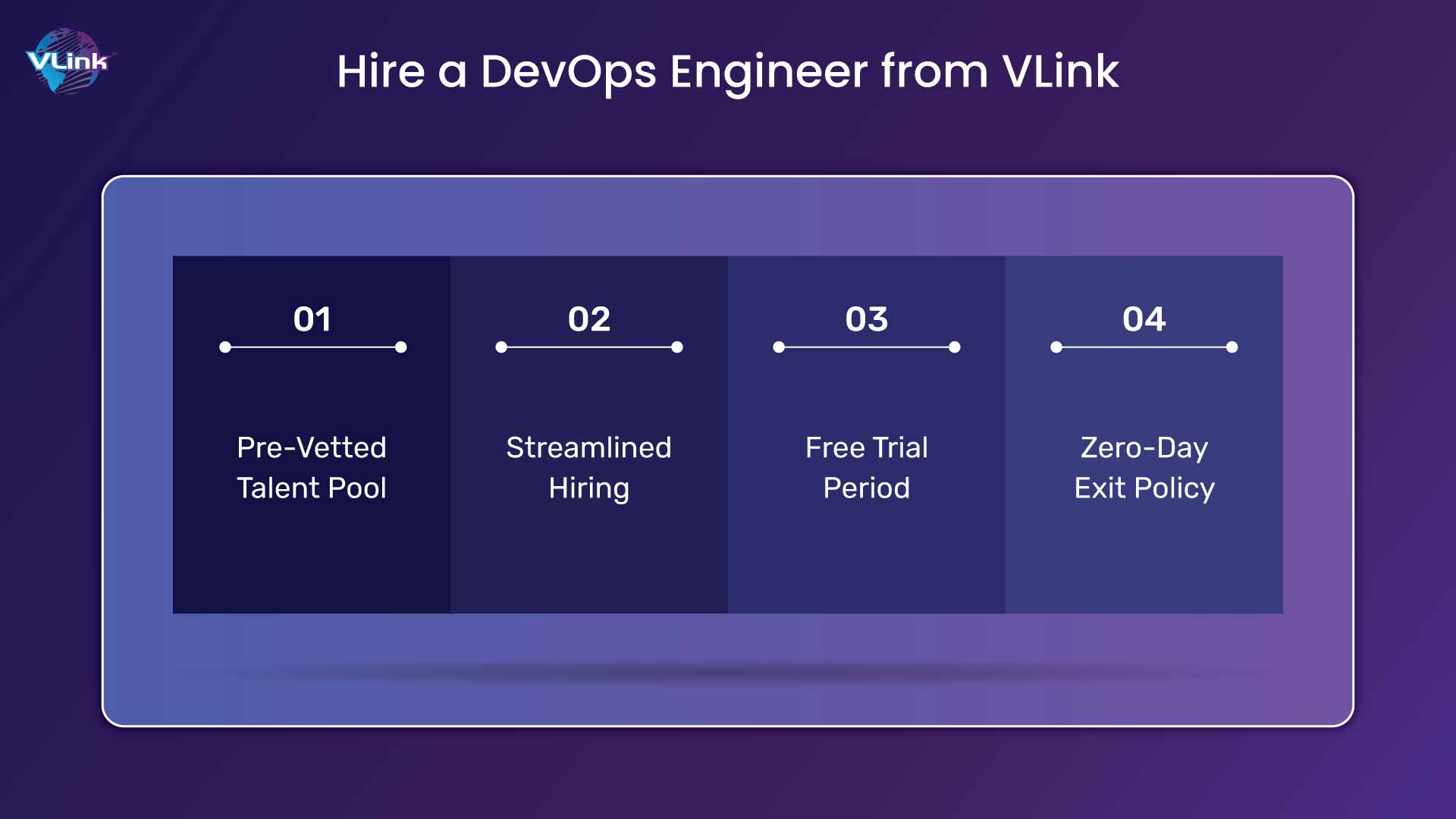In the age of agile development and continuous delivery, DevOps engineers have become the backbone of modern software development. They bridge the gap between development and operations, ensuring a smooth flow from code commit to production deployment. But, finding the right DevOps engineer for your team can be challenging.
The demand for DevOps engineers is skyrocketing. According to the 2024 DevOps Salary Survey, the global average salary for a DevOps engineer is USD 133,115, growing 15% yearly. This surge in demand reflects the growing importance of DevOps practices in streamlining software development and deployment.
This comprehensive blog will equip you with the knowledge and strategies to successfully hire a skilled DevOps engineer who can optimize your software delivery pipeline.
Strategy to Hire a Skilled DevOps Engineer
The secret to finding a top DevOps engineer lies in identifying the right skills and understanding the qualities that make them successful in a collaborative environment. In the following 10 strategies, let’s unveil the secrets to a successful DevOps hire:

1. Define Your Needs:
Before starting your search, clearly define the specific skills and experience required for the role. Consider the size and complexity of your projects, the technologies used, and the particular challenges you want the DevOps engineer to address.
2. Craft a Compelling Job Description:
A well-written job description attracts qualified candidates. Highlight the company culture, the role's responsibilities, and the desired skillset. Use clear and concise language, avoiding excessive technical jargon.
3. Utilize Multiple Sourcing Channels:
Don't limit yourself to traditional job boards. Leverage online communities like DevOps forums, professional networking sites (LinkedIn), and employee referral programs to reach a broader pool of qualified candidates.
4. Prioritize Technical Skills Assessment:
Technical skills are crucial for DevOps engineers. Evaluate their proficiency in cloud platforms (AWS, Azure, GCP), containerization technologies (Docker, Kubernetes), CI/CD pipelines (Jenkins, GitLab CI/CD), scripting languages (Python, Bash), infrastructure as code (Terraform, Ansible), and configuration management tools (Puppet, Chef).
5. Problem-Solving Abilities:
DevOps engineers face unexpected challenges. In your interview, include technical scenarios or coding exercises to assess their problem-solving approach, analytical thinking, and ability to adapt to new technologies.
6. Evaluate Communication and Collaboration Skills:
DevOps engineers collaborate with developers, operations teams, and stakeholders. Assess their communication skills, both written and verbal, ensuring they can clearly articulate technical concepts and foster a collaborative environment.
7. Cultural Fit is Key:
Look for candidates who align with your company culture. Evaluate their teamwork, adaptability, and willingness to learn. A good cultural fit fosters long-term success and employee retention.
8. Prepare Behavioral Questions:
Behavioral interview questions delve into a candidate's past experiences. Ask them to describe situations where they had to overcome challenges, troubleshoot problems, or collaborate with others. Analyze their thought process and decision-making skills.
9. Offer a Competitive Compensation Package:
DevOps engineers are in high demand. Research industry salary benchmarks and offer a competitive compensation package that includes salary, benefits, and potential for growth.
10. Highlight the Company Vision and Role:
Throughout the interview process, highlight the company's vision, the role's significance, and opportunities for professional development. Showcase your company culture and why your organization is a great workplace.
Now, let's check out the top skills for DevOps engineer professionals in detail.
Top Skills and Qualities for DevOps Engineer Professionals
Tech Skills and Qualities: -

- Cloud Expertise: Familiarity with major cloud platforms (AWS, Azure, GCP) for infrastructure provisioning, configuration management, and scaling applications.
- CI/CD Pipelines: Expertise in setting up CI/CD pipelines to automate the build, test, and deployment process, ensuring continuous integration and delivery.
- Containerization Technologies: Knowledge of Docker containers and container orchestration platforms like Kubernetes for efficient application packaging and deployment.
- Scripting Languages: Proficiency in scripting languages like Python, Bash, or PowerShell for automating tasks, configuration management, and infrastructure provisioning.
- Version Control Systems: Understanding of Git version control system for code management, collaboration, and tracking changes throughout the development lifecycle.
- Infrastructure as Code (IaC): Experience with IaC tools like Terraform or Ansible to automate infrastructure provisioning and configuration, ensuring consistency and repeatability.
- Monitoring and Logging: Skills in setting up monitoring and logging tools to track application performance, identify issues, and troubleshoot problems proactively.
- Security Practices: Understanding best practices for cloud environments, container security, and access control mechanisms.
- Problem-Solving and Analytical Skills: The ability to analyze complex problems, identify root causes, and develop innovative solutions.
- Communication and Collaboration: Strong communication skills, both written and verbal, for effectively collaborating with developers, operations teams, and stakeholders.
Soft Skills & and Qualities: -

A successful DevOps engineer is a well-rounded individual with unique technical skills and personal qualities. Here are the 10 essential qualities that define a top DevOps engineer:
- Passion for Learning: The technology landscape is constantly evolving. DevOps engineers must be lifelong learners enthusiastic about embracing new tools, frameworks, and methodologies to stay relevant and ensure their skill sets align with evolving industry standards.
- Teamwork and Collaboration: Collaboration with developers, operations, and other stakeholders is essential for successful DevOps best practices. DevOps engineers should be excellent communicators, fostering a collaborative environment where open communication and knowledge sharing are encouraged.
- Problem-Solving Skills: DevOps engineers face unexpected challenges and troubleshoot complex issues. Strong problem-solving skills and a methodical approach are crucial. They need to be analytical thinkers who can identify root causes and develop innovative solutions.
- Automation Mindset: A desire to automate repetitive tasks and optimize workflows is a hallmark of a skilled DevOps engineer. Automation improves efficiency, reduces human error, and saves valuable time for more strategic initiatives.
- Proactive and Ownership: Key qualities include taking ownership of tasks, proactively identifying potential issues, and suggesting improvements to the software delivery pipeline. A proactive DevOps engineer anticipates problems and takes the initiative to address them before they impact development or production.
- Adaptability and Continuous Learning: As mentioned earlier, the technology landscape is constantly changing. DevOps engineers need to be adaptable and possess a strong desire for continuous learning. They should be comfortable embracing new tools, frameworks, and methodologies to stay relevant and ensure their skillset aligns with evolving industry standards.
- Resilience and Stress Management: DevOps engineers often wear multiple hats, working across development, operations, and security domains. This can lead to demanding situations and tight deadlines. To maintain focus and productivity under challenging circumstances, they must be resilient, handle pressure effectively, and possess strong stress management skills.
- Customer Focus: While the primary focus might be on internal development teams, a customer-centric mindset is valuable for DevOps engineers. Understanding user needs and how their work impacts the end-user experience fosters a sense of ownership and drives them to deliver high-quality, reliable software solutions.
- Root Cause Analysis: DevOps engineers' core competencies are troubleshooting and problem-solving. They need strong analytical thinking skills to identify the root cause of issues, not just address the symptoms. This requires analyzing data logs, performance metrics, and system behavior to pinpoint problems efficiently.
- Attention to Detail and Process Improvement: DevOps engineers create and maintain robust software development and deployment pipelines. A meticulous attention to detail is crucial to ensure these pipelines function smoothly and efficiently. They should also be passionate about process improvement, constantly looking for ways to optimize workflows and eliminate bottlenecks.
In today's competitive market, hiring a DevOps engineer with the perfect blend of technical expertise and personal qualities can feel like searching for a unicorn.
Understanding the essential skills and qualities outlined above can help you develop a clear picture of your ideal candidate.
This allows you to target your search efforts effectively and identify individuals who can excel in the role's technical aspects and contribute to a collaborative and high-performing team environment.
Future Aspects of DevOps Engineers
The future of DevOps engineers is bright and brimming with exciting possibilities. As technology continues to evolve, we can expect to see an even greater emphasis on:
1. AI and Machine Learning Integration:
DevOps practices will increasingly leverage AI and machine learning for automated infrastructure management, anomaly detection, and self-healing capabilities.
2. Security Focus:
As cyber threats evolve, DevOps engineers will be critical in integrating security throughout the entire software development lifecycle (DevSecOps).
3. Cloud-Native Development:
Adopting cloud-native architectures will drive demand for DevOps engineers with expertise in containerization, serverless computing, and microservices.
4. Infrastructure as Code (IaC) Adoption:
IaC will become the standard for infrastructure provisioning, ensuring consistency, repeatability, and faster deployments.
5. Continuous Learning:
DevOps engineers must continuously learn new tools, technologies, and methodologies to stay relevant in a rapidly evolving landscape.
6. Focus on Observability:
Monitoring and analyzing application performance data will become increasingly important for proactive problem-solving and performance optimization.
7. Shift-Left Security:
Security considerations will be integrated into earlier stages of the development process, with DevOps engineers playing a crucial role in implementing security best practices.
8. Compliance Automation:
DevOps practices will integrate tools for automated compliance checks, ensuring adherence to regulatory requirements.
9. DevOps for Non-IT Teams:
The DevOps philosophy will extend beyond traditional IT teams, with business analysts and product managers adopting DevOps principles for faster delivery cycles.
10. Metrics and Measurement:
DevOps engineers will embrace data-driven approaches, utilizing metrics to measure performance, identify bottlenecks, and continuously improve the software delivery pipeline.
Hiring skilled DevOps programmers is an investment in your company's future. The right individual can revolutionize your software development lifecycle, leading to the following:
- Faster Deployments: Streamlined workflows and automated processes significantly reduce deployment times, allowing you to quickly get features and updates into the hands of your users.
- Improved Software Quality: DevOps engineers champion collaboration and communication between development and operations teams. This fosters a culture of shared responsibility, leading to higher-quality software releases.
- Enhanced Efficiency: Automation is a DevOps engineer's superpower. By automating repetitive tasks, DevOps engineers free up valuable development resources, allowing them to focus on innovation and core functionalities.
- Reduced Costs: Faster deployments, improved quality, and increased efficiency translate to long-term cost savings.
Hire a DevOps Engineer from VLink

Finding the right DevOps engineer can feel like searching for a unicorn: a mythical creature with a specific skill set that seems to exist only in legend. But fear not! VLink can be your guide through this seemingly impossible quest.
We are more than just a recruiting agency. VLink operates with a deep understanding of the DevOps landscape. Our dedicated team comprises experienced professionals with a pulse on the latest trends and technologies. This expertise allows us to match your specific needs with the ideal DevOps candidate meticulously.
Here's how VLink can help you find your DevOps dream team member:
- Pre-Vetted Talent Pool: We maintain a curated network of top-tier DevOps engineers. Each candidate undergoes a rigorous screening process to ensure they possess the technical skills, problem-solving abilities, and cultural fit that aligns with your company's needs.
- Streamlined Hiring: Gone are the days of lengthy interview processes and endless resume reviews. VLink's efficient approach connects you with pre-qualified candidates within 48 hours.
- Free Trial Period: Unsure if a candidate is the perfect fit? VLink offers a risk-free, 7-day trial period. This allows you to assess their skills and compatibility within your team dynamic before committing.
- Zero-Day Exit Policy: Flexibility is key. VLink understands that hiring needs can change. Our Zero-Day Exit Policy empowers you to part ways with a candidate at any time, without penalty. You only pay for the time and expertise you utilize.
That's all we have for you today! Don't wait now. Let VLink help you find the DevOps engineer who will become a valuable asset to your team and a driving force behind your company's success.
Remember, finding the perfect DevOps engineer doesn't have to be a challenge. VLink offers a streamlined approach, access to pre-vetted talent, and a risk-free trial period. Partner with VLink to find the missing piece of your DevOps puzzle.
Conclusion
By understanding the essential skills, qualities, and future trends in DevOps engineering, you can effectively hire the right talent to propel your software development efforts forward. Remember, a skilled DevOps engineer can bridge the gap between development and operations, leading to faster deployments, improved performance, and a more efficient software delivery process.
The DevOps landscape is constantly evolving, and the demand for skilled professionals shows no signs of slowing down. By partnering with VLink, you gain access to a network of top-tier DevOps engineers with the expertise and qualities needed to optimize your software delivery pipeline.
Contact us today to discuss your specific needs and unlock the full potential of your DevOps initiatives. Don't settle for anything less than the best.









 Shivisha Patel
Shivisha Patel

















